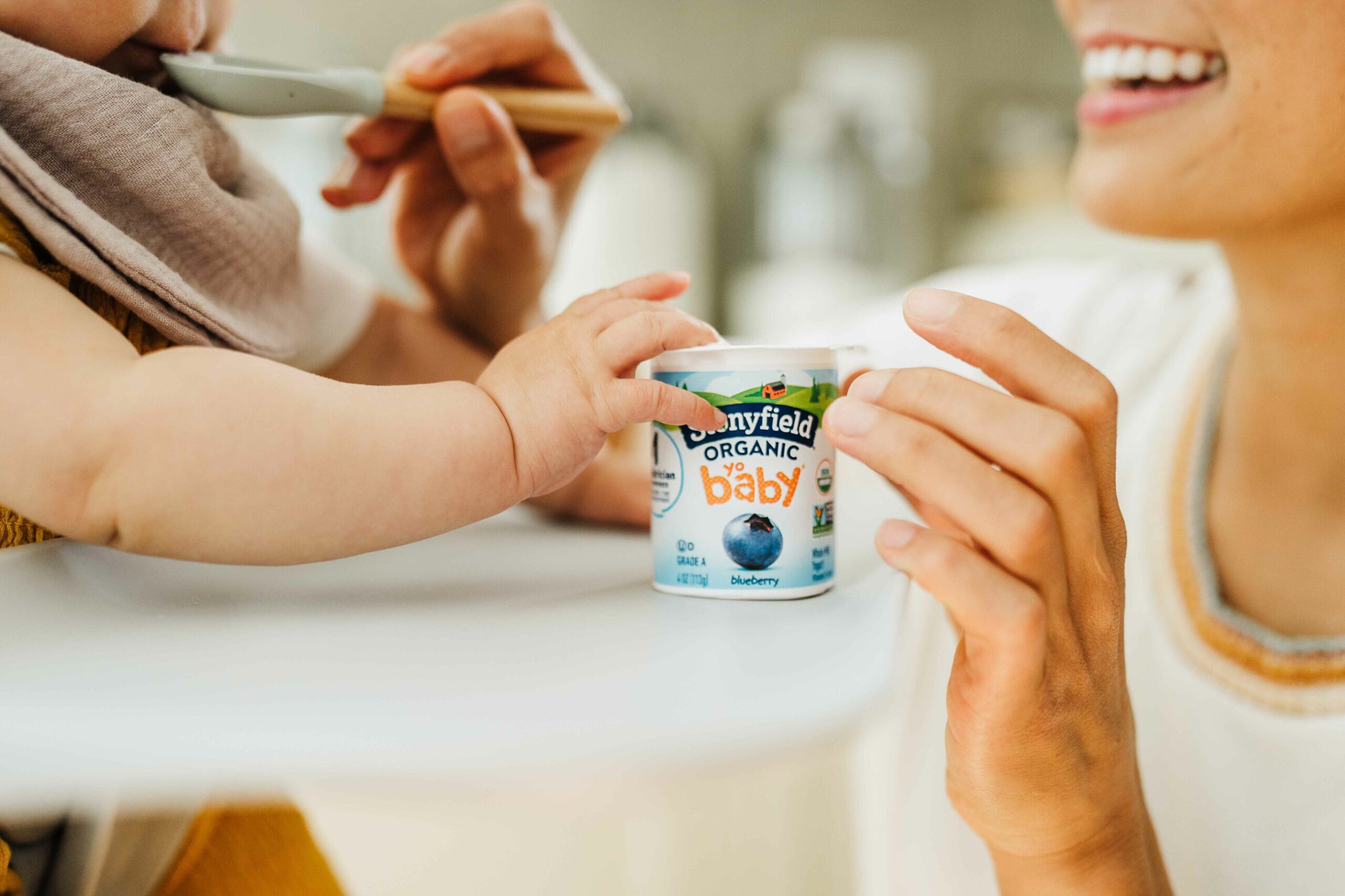When Can Babies Eat Yogurt?
May 14, 2015
webmaster@push10.com

Think “first food” and you probably think cereal, pureed carrots, and tiny spoonfuls of strained peas. But you can actually add yogurt to that list. Surprised? You might be, especially if you’ve heard that cow’s milk is off-limits during the first year of life.*
Time to clear up the confusion: It’s true that straight-up cow’s milk isn’t recommended until your baby is 1. Babies can’t digest cow’s milk as well as they can formula or breast milk, and cow’s milk has a high concentration of protein and minerals that can stress their immature kidneys. There’s also a concern that it could crowd out breast milk and formula, both of which contain vitamins, minerals, and certain kinds of fats that cow’s milk just doesn’t have.
But yogurt is different. Thanks to the live, active cultures that break down the lactose and protein, it’s much easier for babies to digest. YoBaby yogurt naturally offers calcium and is fortified with vitamin D, two must-have nutrients for babies. And there’s no worry that yogurt would replace breast milk or formula in the diet. For those reasons, pediatricians give yogurt the green light for babies beginning at six months.*
Pediatricians give yogurt the green light for babies beginning at six months.
Try starting your baby with plain yogurt. Though plain yogurt may not sound appealing to you, trust me: Your baby will absolutely delight in it. With no added sugar, Stonyfield YoBaby Plain is perfect on its own, or you can use it as a base for swirling in all kinds of fruit and veggie purees. It has a mild taste and smooth texture that’s just right for this age. It’s also made with whole milk, which is important. During the first few years of life, your baby is growing rapidly, so the energy needs are high. Pediatric health professionals recommend fat for infants younger than 2 years to help support this period of rapid growth and brain development.**
What about allergies? Pediatricians approve introducing yogurt starting at six months. If there’s a family history of cow’s milk allergy, work with your pediatrician to introduce yogurt after your baby has had other first foods (like cereal and veggies) and tolerated them well. As with all first foods, you should also wait 3-5 days between trying new ones so you can identify any possible reactions. It’s natural to have concerns about allergies, so talk to your pediatrician before starting new foods—and give your baby new foods at home, rather than at daycare or a restaurant, for instance.
Like all of Stonyfield’s yogurts, YoBaby is also organic. That means it’s made without the use of harmful persistent pesticides, antibiotics, artificial growth hormones, or genetically modified organisms (GMOs)—things you don’t want to worry about, especially in a first food.
The views and opinions expressed in this post do not necessarily reflect the opinions and views of Stonyfield. The content provided, and in any linked materials, are not intended and should not be construed as medical advice. If you have any questions about health or nutrition, we always think it’s best to consult with your doctor or healthcare practitioner. The author is a paid spokesperson for Stonyfield.
*Greer, Frank R., Nancy F. Krebs, and Committee on Nutrition. “Optimizing Bone Health and Calcium Intakes of Infants, Children, and Adolescents.” Pediatrics (2006) 117 (2): 578-585. https://doi.org/10.1542/peds.2005-2822.
**Greer, Frank R. and Ronald E. Kleinman, eds., “Prevention of Atherosclerosis and Prudent Lifestyle and Diet” in Pediatric Nutrition,
7th ed. (Elk Grove Village: American Academy of Pediatrics, 2014), 795.
